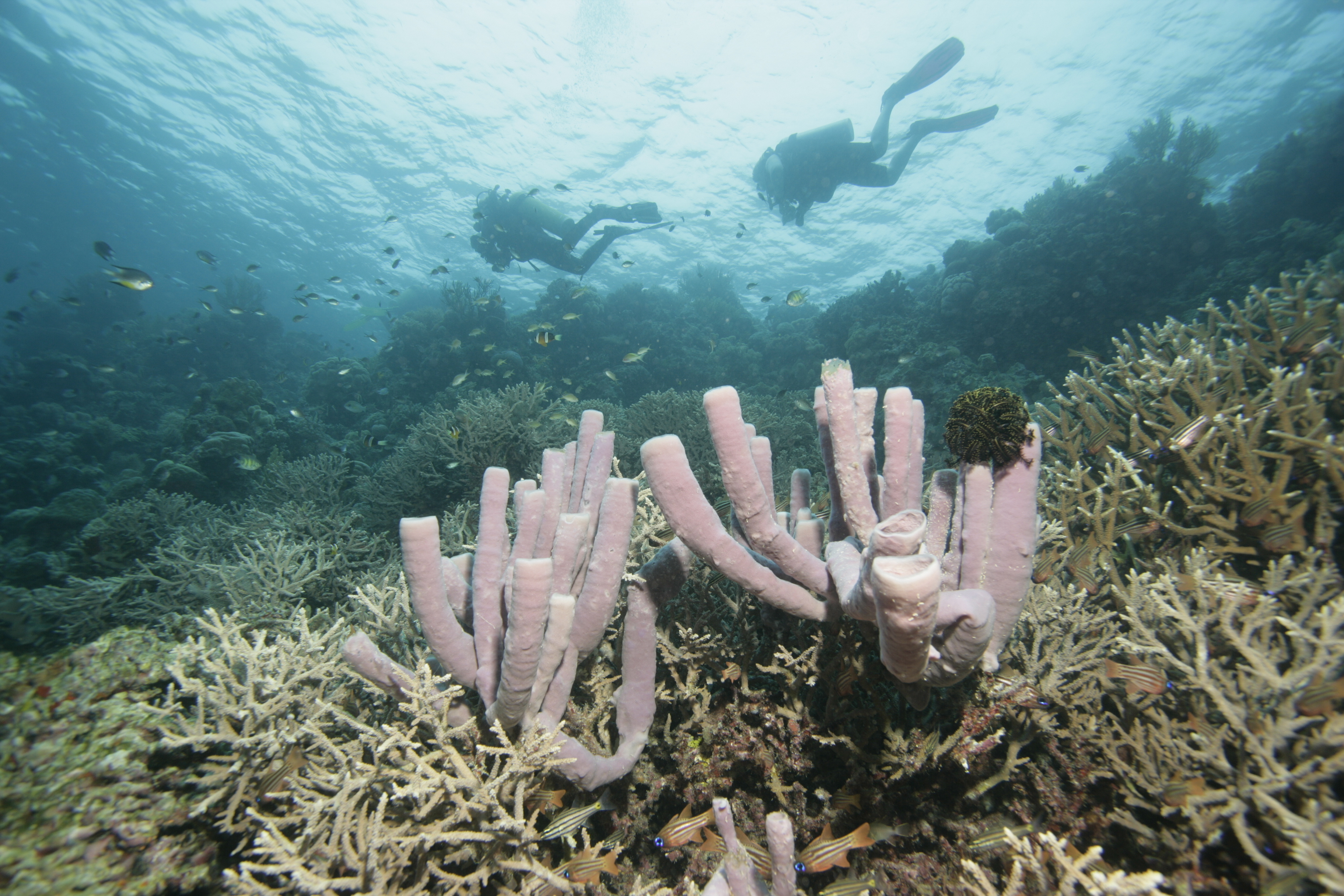
IN an an acclaimed career capturing the wonders of wildlife on film, there is little left to shock award-laden cameraman Doug Allan.
The devastation being wreaked by climate change on the world’s coral reefs and plastic pollution on world’s sealife, however, is so appalling, he says, that enough is enough.
Doug, whose work has earned him eight Emmys and five Baftas, said: I’m very saddened by what I see and it does fire me up to do what I can about it.
“There is so much evidence about the effect we’re having on the seas and the wildlife in them.
“There is indisputable scientific proof. You look around and think, ‘Come on. We owe it to ourselves and especially to our kids who are going to have to live with the consequences’.
“I’ve been working in the natural world since the 1970s and if we didn’t know enough about it then, we certainly do now.
“We need some big national programmes.”
Doug’s work on major BBC series like Blue Planet, Planet Earth and Frozen Planet have taken him all over the world and earned him a plethora of awards.
Having reached the milestone of 35 years filming wildlife, he has seen nature in all its glory – and sometimes goriness.
But it’s what man is doing that really tugs at his heartstrings, especially some of the sights witnessed during filming on A Plastic Ocean. The film, about the pollution caused by plastic waste in our oceans, has been hailed for raising awareness and changing attitudes like Blue Planet II.
Doug, 67, says it’s both the visible plastics, that get swallowed and tangled, and micro-plastics that get ingested by creatures that feed by filtering the waters.
“People often ask me whether I get saddened by seeing wee animals eaten when I’m shooting a hunting sequence,” said Doug.
“But animals eating other animals is a part of nature and my job is to be there and record what’s happening.
“What’s much sadder is when you see an animal suffering because of what we’ve done.
“That can be a turtle eating a plastic bag or a seal with discarded fishing net wrapped around its neck. You can see it’ll be condemned to a long, painful death because it can’t swim or feed properly. And I was present on a remote island in the Pacific where scientists were cutting open dead albatross chicks and finding large amounts of plastic.
“The plastic had been taken in by the adult and fed to its young.
“That’s what’s sad, not nature raw in tooth and claw.”
Doug, who was born in Dunfermline, admits his initial amazement and wonder at the natural world has gradually given way to concern during his decades behind the camera.
And his work with the Living Oceans Foundation has really brought home the changing face of our planet.
The environmental science organisation aims to preserve, protect and restore the world’s oceans and they’ve been using Doug’s expertise to track the state of beautiful, but vulnerable, coral. “Their hope is that by 2020, 20% of the world’s coral reefs will be protected,” said twice-married dad-of-one Doug, who now lives in Bristol.
“But when you go to some countries their resources can be limited and the reefs are remote, so they don’t know which to protect. So we’d dive on the reefs and I’d film what the scientists were finding.”
Over-fishing through under-reporting of catches is one issue.
But Doug could also see pretty pink coral, like Australia’s famous Great Barrier Reef, being bleached white by climactic changes resulting in warmer seas.
“Coral reefs only thrive in certain temperatures and if the water gets too warm it can turn them white.
“If that doesn’t last too long, they can recover.
“But if the temperatures stay high it can fatally weaken them and large areas of the Great Barrier Reef have suffered from sustained bleaching and are more brittle and prone to damage.
“And then the growing levels of carbon dioxide in the air also gets dissolved into the seawater, making it more acidic and causing further damage.
“You’re just turning the screw on the recovery of the coral, even if the water cools down to its normal rate.”
Doug, who has also been working recently in the Arctic on a major eight-part National Geographic series called Hostile Planet, will be sharing his concerns and talking about the rest of his remarkable work on a forthcoming theatre tour.
It begins in Langholm on October 7 and has dates right across the country, including Glasgow, Edinburgh, Stirling and Inverness, before concluding in Shetland on November 4.
“Things were definitely a lot different now from when I started 35 years ago,” said Doug, who was back in Scotland yesterday for his brother Graeme’s 60th birthday.
“The world has changed a lot. I try to raise awareness wherever I can but I’m also doing lots of other things and I want to pass on what I’ve learned.
“I was asked to be the honorary president of the Scottish Association of Geography Teachers and the idea was to address their AGM.
“But I love talking to youngsters and connecting people with the planet, so I said that what I really wanted to do was visit as many schools and tell them what is happening to the Earth.
“And I still haven’t hung up my camera. I hope to get some filming done later this year.”
See Doug’s website at dougallan.com

Enjoy the convenience of having The Sunday Post delivered as a digital ePaper straight to your smartphone, tablet or computer.
Subscribe for only £5.49 a month and enjoy all the benefits of the printed paper as a digital replica.
Subscribe